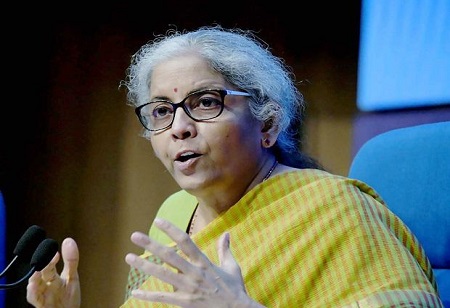With an aim to accelerate
economic recovery Nirmala Sitharaman, the Finance Minister of India met the captains of corporate India to discuss the methods, on the 24th of August, 2021.
FM Nirmala Sitharaman acknowledged that there are pioneering transformations occurring in the financial landscape that the government policy should facilitate. The finance minister added that the Indian economy is moving from a
bank-led lending model to a
market-based finance model, gradually and, after the Development Finance Institution begins to operate, it will perform the function of long-term lending that has been carried out by banks, conventionally and this would raise competition for the banks as well as enhance their efficiency.
Bank-based vs Market-based systems
While a financial system is more complex it is also a connected system comprising financial markets, financial intermediaries, financial assets, and financial institutions.
Financial systems in higher-income countries or nations tend to be more market-based since stock markets in these countries emerge to be highly active and more efficient when compared to banks.
We observe that the financial systems are ought to be highly market-based in countries where even after efforts are made to control for income, countries with a common law tradition, strong protection of where shareholder rights are protected strongly, whose accounting standards are good, levels of corruption is not high but low and no explicit deposit insurance.
Banks play a major/leading role in significant events of bank-based systems such as mobilizing savings, capital allocation, administering/guiding the investment decisions of corporate managers, and rendering risk management vehicles.
Whereas, in market-based systems what plays a major role are the securities markets with banks in obtaining society’s savings to organizations/firms, exercising corporate control, and mitigating risk management. While some of the analysts recommend that markets are highly effective at
